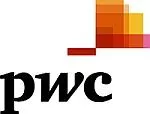"You never know who's swimming naked until the tide goes out." – Warren Buffet Is there a perfect storm gathering?
The economic outlook for Africa's largest economy appears to be gloomy occasioned by the recent free fall in oil prices. With Boko Haram insurgency in the North East of the country, the Ebola Virus Disease still a potent threat across the West Africa Sub region and the inactivity and uncertainties usually associated with impending general elections, there are genuine reasons for apprehension in the polity.
In recent months, the price of crude oil has fallen 30% to below $80 per barrel, with little signs of a rapid rebound. As a consequence, we have seen a flurry of activities in response to the impact this has had on the economy. Notably;
- The Nigeria Stock Exchange All Share Index and Market Capitalization dropped by 4.11 percent to close at 33,926.18 and N11.241trillion respectively for the week ended Friday 21 November 2014. International news agency, Reuters reported the selling off of Nigerian stocks valued at 101.2billion naira ($583.6 million) by foreign investors in October following the drop in the oil price.
- The Excess Crude Account has shrunk to about $4bn. Already the squeeze from lower oil prices is rippling through the fiscal system, with some states reportedly unable to meet their wage bills and making demands for more funds from the excess crude account.
- The country's foreign reserve dropped to $36.5 billion, down 18.3 percent from a year ago and continues to fall.
- The Federal Government has revised the 2015-2017 Medium Term Expenditure Framework (MTEF), proposing a new benchmark of $73 per barrel of crude for the 2015 budget as against the earlier proposed figure of $78.
- The Naira band has been devalued and is now to exchange at N168 to the US Dollar from N155 an almost 8% decline.
- Monetary Policy Rate (MPR) increased by 100 basis points from 12 to 13%.
- Cash reserve ratio (CRR) on private sector deposits increased to 20% (From 15%) while that for public sector deposits was maintained at 75%.
Are there enough reasons to panic?
The answer is No. While the next 1-2 years are likely to be challenging, PwC believes that the Nigerian economy as well as Nigerian companies are resilient enough to weather the challenge of lower oil prices. It must be noted that this is not an entirely new experience as the country has been through a similar situation in 2008 when oil prices fell to $38 and $40 per barrel and emerged stronger from it. One of the positive outcomes of that experience was the strengthening of the risk management system of banks which has positioned them to cushion the impact of the current situation on the financial system. We are confident that the country and the economy would ultimately benefit from the current drop in oil prices especially as it presents an opportunity for economic diversification.
What should companies operating in Nigeria expect?
- Nigeria relies heavily on imports of both consumer and investment goods. The continued downward pressure on the naira threatens to stoke inflation by pushing up cost of imports. This will inevitably put severe pressure on both margins and volumes.
- Nigerian firms that are exposed to foreign denominated loans will have to pay more in Naira to service those loans. Loans borrowed outside of Nigeria at variable rate have a portion of credit risk included in the interest rate currently hence current economic realities will increase credit risk thereby increasing interest rate payable by companies. In addition, loans denominated in other currencies will have earnings impact as IFRS requires gains or losses on these monetary items on reporting date should hit profit or loss account.
- A lot of Nigerian banks have opted in recent times to go for cheaper foreign denominated debt instruments, some of these have been collateralized against bonds and debt instrument assets sitting on the balance sheet, with the devaluation of naira, the lenders will likely ask them to pledge more of these assets. In addition, if these assets qualify for Tier II the lender may ask for stricter rules surrounding these assets affecting the banks capability of having these assets form part of their Tier II capital and subsequently cause the bank to be unable to meet minimum capital requirements.
- For Nigerian Financial Services entities exposed to foreign currency loans extended to customers, the result is that the fair value of the loans will now be lower than their carrying amounts, and this is a disclosure requirement under IFRS. The loans will also be under collateralized , which may force banks to demand more collateral and higher interest rates. This will have a cyclical effect in the economy.
- Rising interest rates will result in lower fair values for financial instruments measured at fair value. Such fair value losses are recognized immediately in profit or loss if the financial instruments are classified as at fair value through profit or loss. If the financial assets are classified as available for sale, the fair value losses will reduce equity affecting the overall health of the balance sheet of companies. In addition, due to the absence of a deep market, and regulatory restrictions to the trading of debt instruments in the Nigeria stock market, liquidity pressure will be heightened following Nigerian companies increased credit risk. The implication of this is that more companies may fail due to lack of cash.
- For foreign firms that have invested in Nigeria, they will find the value of their investments immediately reducing along with earnings. However such firms may find it cheaper to fund day to day requirements such as the decrease in USD as a result of the devaluation.
- The ability of some Nigerian companies to pay dividends may be affected as well.
- Governments at all levels will get more aggressive on taxation. This has been the experience in other countries that have had similar experiences. Already in Nigeria, the Government has indicated its intention to increase focus on non-oil revenue sources and tax luxury products. There would be increased scrutiny of the tax compliance of companies and of their owners. Many companies hit by exchange losses may still have huge current tax bills where the exchange losses remain unrealized at reporting date.
How companies could respond?
To weather the storm and perhaps emerge from it stronger, companies operating in Nigeria should pay attention to the following:
- Make sure your financing is in place. It is important to secure your projects longevity by extracting long term funding commitments which are matched to the project horizon.
- Verify your business partners. Businesses need stable, well-financed suppliers that will be able to cope with reduced system liquidity. Similarly, you need customers that can pay and who will pay on time. Being able to do this reduces risk significantly.
- Watch the economic signs carefully and perhaps seek expert guidance before taking decisions. You must note that making complex business decisions in an environment of extreme uncertainty comes with significant risk. It is thus a good time to get reliable information on market intelligence and trends analysis.
- Understand how the oil price decline will affect the actions of the public sector. As mentioned above, we expect an increased focus on taxation and other nonoil revenue sources. Companies should immediately engage policy makers to ensure a balance in Government reaction. After all, taxes can only be collected if businesses are making profits and creating jobs.
- Cash in on opportunities created. For example imported raw materials will become expensive, thus presenting an opportunity for Nigerian businesses to explore local alternatives.
- Review your cost structure: Companies should take another look at their cost structure and identify/implement efficiency measures. This is especially critical for businesses with products that experience a drop in demand following price increase. For companies that can easily increase prices, there is a need to monitor the market dynamics as well as competitor activity before making the move.
- Working capital management will be key. In particular, businesses with shipments in transit which were secured in foreign currencies but with expected revenues in Naira must immediately start looking at their balance sheet and how to manage inventory, payables and receivables.
What Can the Government do?
As challenging as the new environment will be for the private sector, it is likely to be even more challenging for the public sector who will struggle to make adjustments following the painful exposure of their over-reliance on oil revenue. PwC's position is;
- Make the strong move towards diversification. The talk of focusing on non-oil revenue sources has been in the front burner for a while now. Significant progress has already been made in agriculture, and the nation is on the cusp of major gains in manufacturing and solid minerals. Governments need to now redouble their efforts and put in place the necessary measures towards full economic diversification.
- Economic diversification will require significant foreign investment, both from the private sector and from development finance institutions. Nigeria needs to make sure it is an attractive destination – this will require continued work on issues like anti-corruption, security, infrastructure and having the right regulations in place.
- Governments at all levels especially the states and local governments need to focus on increasing their non-oil revenue and building their internally generated revenue levels. The reality is that the days of complete dependence on federal allocations earned from oil are over. Making this move will require investment in systems that track companies and individuals, as well as the political will on the part of the leaders to implement.
- Power is the key. The Government needs to continue to push through with the implementation of the Power roadmap and show the will to make the additional changes needed for the power sector to deliver. The Nigerian economy can only reach its potential when power supply is stable.
- This is perhaps a good opportunity to put in place an Africa focused hedging or currency volatility insurance. Institutions like the World Bank and African Development Bank may need to consider collaboration with central banks across the continent to see how these products can be created at least to maintain or reduce any adverse downsides to private sectors and FDI.
| Emerging from the storm
stronger We at PwC have long predicted that the high oil price regime is not sustainable. With the recent falling price trend, we believe this is an enormous opportunity for Nigeria and Nigerian businesses to move beyond the over-reliance on oil- with all the problems it has brought- and build a truly diversified economy that works for all of her citizens. Nigeria continues to be a very attractive place to invest not because it is an oil producer, but because of the immense size of its domestic market and the extraordinary commercial energy of its people which remains largely untapped. It is time to tap into these potentials for long term economic stability. Getting a grip of the situation however will require tough decision making on the part of both Government and businesses with an emphasis on strategic planning and fiscal discipline. |
The content of this article is intended to provide a general guide to the subject matter. Specialist advice should be sought about your specific circumstances.


